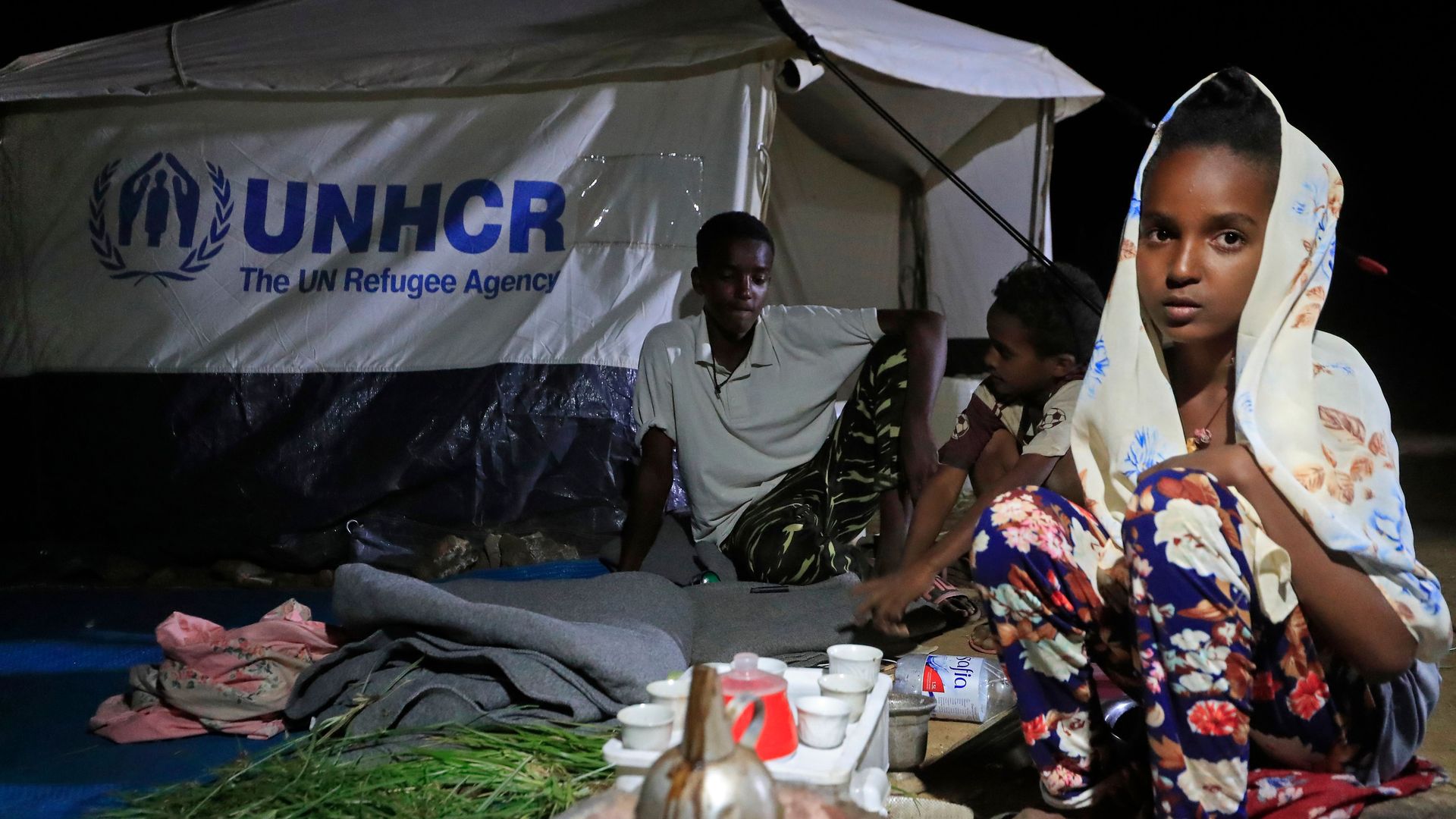Feb 11, 2021 - World
Ethiopia seeks to ease fears of humanitarian disaster in Tigray
Add Axios as your preferred source to
see more of our stories on Google.

Child refugees who fled the conflict in Tigray. Photo: Ashraf Shazly/AFP via Getty
Add Axios as your preferred source to
see more of our stories on Google.

Child refugees who fled the conflict in Tigray. Photo: Ashraf Shazly/AFP via Getty